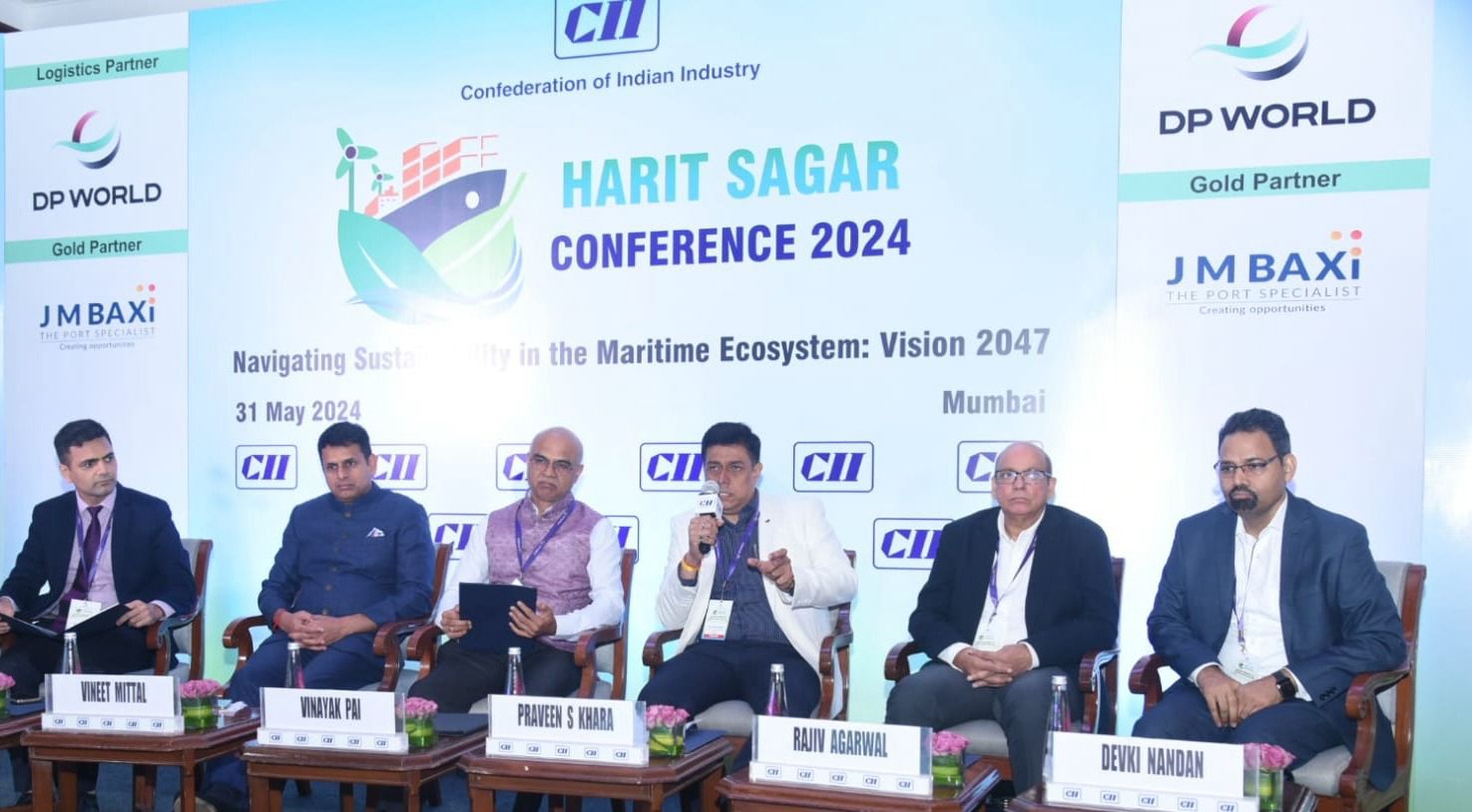
Govt of India’s Harit Sagar Guidelines leading the way for focussed efforts in Green Transitions in of the Indian Maritime : Experts at CII Conference
MUMBAI : Capt. Praveen S. Khara, Chief Port Officer of the Maharashtra Maritime Board, emphasized the government’s active promotion of the Harit Sagar guidelines at the Harit Sagar Conference 2024 organized by CII under the theme “Navigating Sustainability in the Maritime Ecosystem: Vision 2047.” He highlighted that Maharashtra handles an immense 77 million metric tonnes of cargo, involving a wide array of stakeholders across the logistics and trade ecosystem. Capt. Khara called on these public and private stakeholders to collaborate in decarbonizing the entire chain of operations. The 2023 Harit Sagar Guidelines focus on creating a greener shift in port development, operation, and maintenance, aiming to minimize the environmental impact on the harbor ecosystem.
Mr Vinayak Pai, Vice Chairman, CII Maharashtra and Managing Director & CEO, Tata Projects highlighted that industry has to learn to compete and co-create to decarbonise the maritime sector at the CII’s Harit Sagar Conference 2024. He stressed that India’s goal should be in reducing the logistics cost as it currently accounts for over 15 per cent of total cost. Since maritime trade constitutes significant amount of emissions, it becomes imperative to decarbonise the maritime ecosystem.
CII Harit Sagar Conference 2024 was organised in the backdrop of Harit Sagar guidelines issued by government which emphases on use of Clean / Green energy in Port operation, developing Port capabilities for storage, handling and bunkering Greener Fuels viz. Green Hydrogen, Green Ammonia, Green Methanol / Ethanol etc. These Guidelines provides a framework for the Major Ports for drawing out a comprehensive action plan for achieving targeted outcomes in terms of quantified reduction in carbon emission over defined timelines, through focused implementation and close monitoring of Green Initiatives and to achieve Sustainable Developmental Goals (SDG).
Mr Vineet Mittal, Chairman, CII National Committee on Green Hydrogen and Chairman, Avaada Group said “with 95 per cent of India’s trade and 80 per cent of global trade taking place via sea routes it is imperative that we take significant steps to reduce maritime pollution as it causes sixth highest pollution. Aligning Indian maritime guidelines with the Marine Environment Protection Committee (MEPC) standards will help not only in preserving our oceans but also in setting a benchmark for global maritime practices.”
Mr Rajiv Agarwal, Managing Director and CEO, Essar Ports Ltd stated that In the coming years, India will emerge as a hub for green energy and a leading exporter of sustainable energy solutions with the Harit Sagar guidelines being a norm for companies to comply. As technology evolves, our mindset must also adapt, recognizing that decarbonizing will be a mandate for the future. Embracing this shift is crucial for our progress and leadership in the global energy landscape.
Mr Devki Nandan, Senior Executive President, JSW Infrastructure said that the Harit Sagar Guidelines will soon become mandatory because of global ESG concerns. He said, “As we strive to decarbonize, our green policies should set a benchmark for other countries. Safety criteria have become a mandate in today’s time, and our commitment to sustainability must reflect that.”

